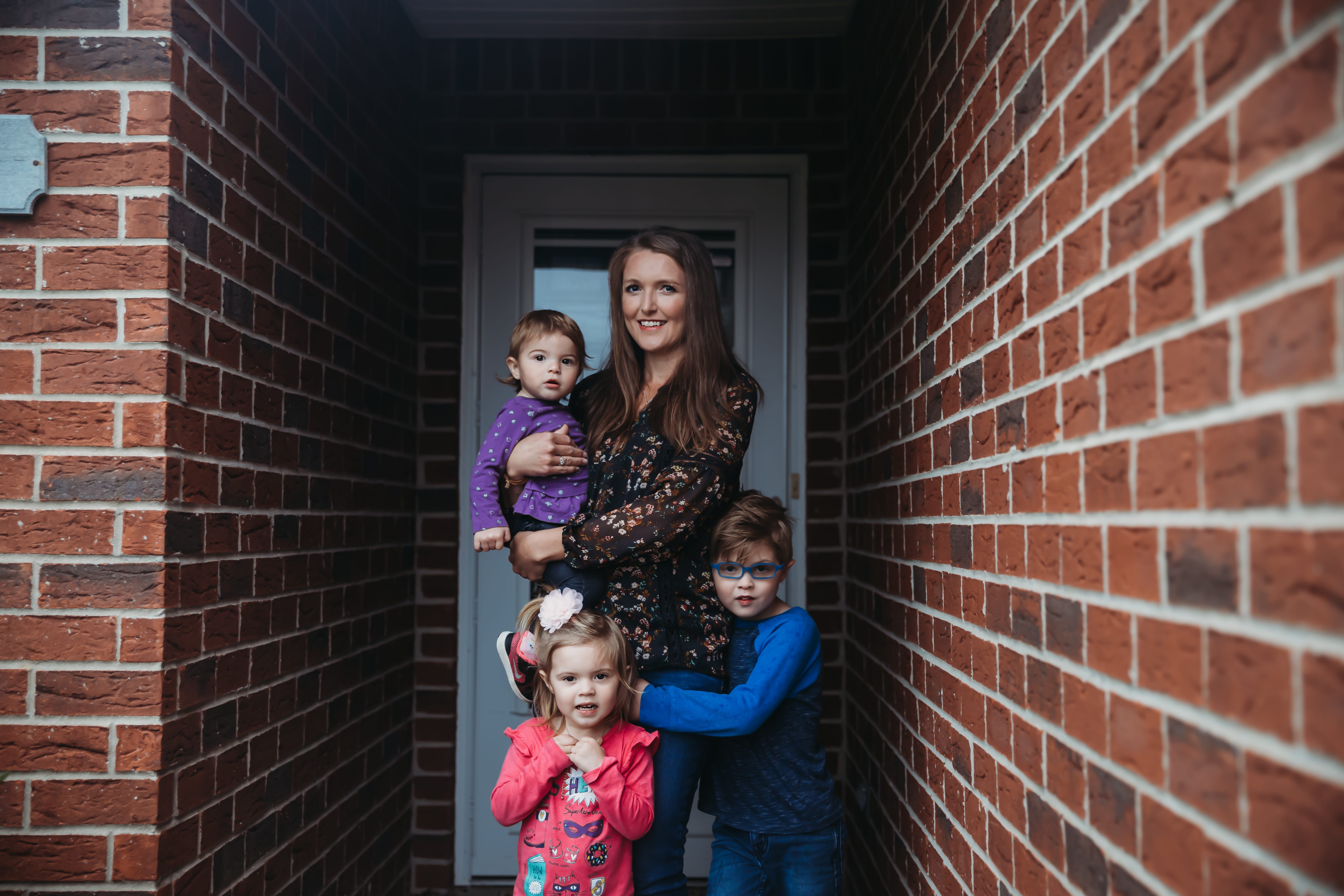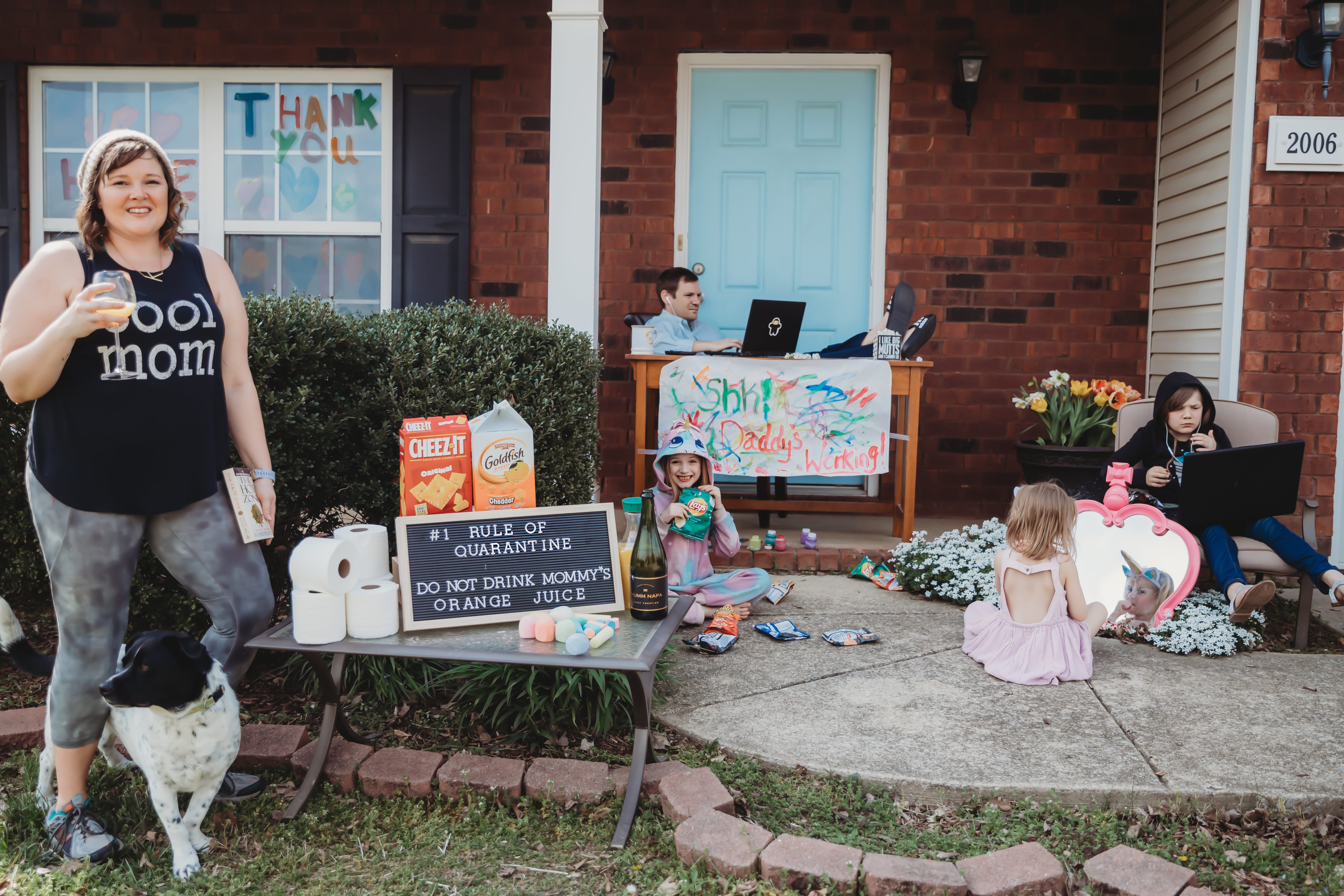Batra Family of Needham, Mass. CARA SOULIA PHOTOGRAPHY
As a photographer, Cara Soulia feels her purpose is to document life. It’s why she left a successful career in finance five years ago to pick up her camera full-time. So when the coronavirus pandemic began to take hold of Soulia’s cozy Boston suburb, closing schools and forcing residents indoors, she worried about more than just her finances.
“Even though this is negative, it’s historic and needs to be documented,” said Soulia, who lives in Needham, Massachussetts. “I couldn’t help but think, ‘How am I going to document this time in history?' Then I got the call from Kristen.”
Kristen Collins helps Soulia market her family photography business. She had been considering a similar question over coffee when she had a flashbulb idea: Why don’t we go to these families and capture this moment in their lives where they are – in their homes?
Or to be more specific and socially distant, in front of their homes. The Front Steps Project was launched on St. Patrick’s Day, and it has since raised almost $20,000 for charity.
Soulia and Collins started by pitching the idea to a handful of close friends and clients. Soulia would drive over, honk, and the family would be dressed and ready to step out the front door. Soulia would come no closer than 10 feet and do her best to pose them.
“I’m used to being up close and moving them,” Soulia said. “I’m not used to posing people with my words – I don’t even know everyone’s names.”
Once she gets “the girl on the end” or “the dad” in the frame and looking at her, she snaps a few shots and is on her way. In lieu of payment, she requests a donation to the Needham Community Council, a nonprofit that works to address health, educational and social needs in the community.
Thanks to social media and word of mouth, Soulia and Collins were soon overloaded with requests through their online application form. Two other area photographers, Caitrin Dunphy and Topher Cox, joined the project. Together, they have shot nearly 400 Needham families.
Perhaps even more inspiring was the response from other communities around the country as news of the Front Steps Project stretched to Georgia to Indiana to California. More than 250 photographers contacted Soulia and Collins looking to capture their neighborhoods and raise money for local causes. A studio in South Carolina has families hold up a sign with a word or two about what this time has meant to their families. A photographer in Michigan calls them "porchraits."


Now that pandemic has intensified, Soulia and Collins want to set another example for their fellow photographers: hitting pause. As of this week, The Front Steps Project is joining the movement to “flatten the curve.”
“We knew we’d have a stay-at-home order,” Collins said. “We want to respect our government and community. We want the other photographers to see us as leaders who say when it’s time to stop, it’s time to stop.”
While Soulia and her 10-year-old daughter/navigator were hustling around the neighborhood, frantically clicking the shutter button, they didn’t have time to stop to appreciate what they were doing. Now on hiatus, Soulia has had a chance to go back and really look at the images: families wearing everything from slacks to PJs, huddling together, trying to smile through one fleeting moment of normalcy in a time of staggering uncertainty.
“One of the most important moments was when we connected with the local hospital,” Soulia said. “There were nine ER doctors in blue scrubs with masks on. It was everything. The story of what was happening. I didn’t have time to process it at the moment. When I got home, I couldn’t help but cry.”
Tony Rehagen is a freelance writer in St. Louis.